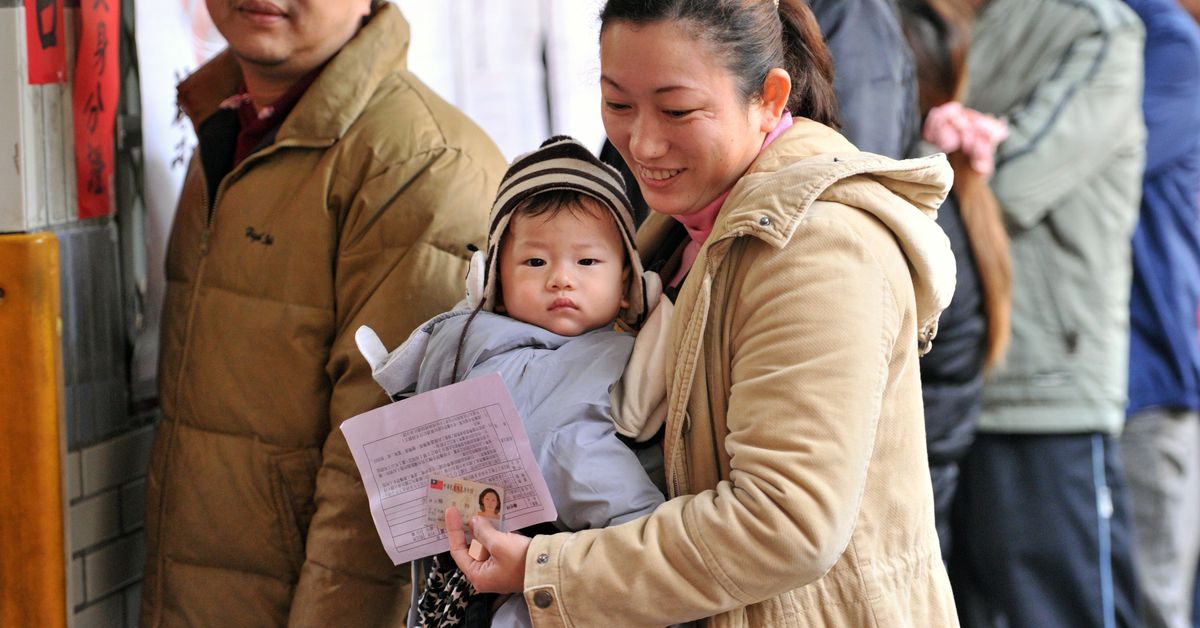These countries tried everything from cash to patriotic calls to duty to reverse drastically declining birth rates. It didn’t work.
…
If history is any guide, none of this will work: No matter what governments do to convince them to procreate, people around the world are having fewer and fewer kids.
In the US, the birth rate has been falling since the Great Recession, dropping almost 23 percent between 2007 and 2022. Today, the average American woman has about 1.6 children, down from three in 1950, and significantly below the “replacement rate” of 2.1 children needed to sustain a stable population. In Italy, 12 people now die for every seven babies born. In South Korea, the birth rate is down to 0.81 children per woman. In China, after decades of a strictly enforced one-child policy, the population is shrinking for the first time since the 1960s. In Taiwan, the birth rate stands at 0.87.



But think of the capitalists! How will the stock market continue to make gains if there are less people?
It’s worth noting that communists and socialists also depend on population growth to sustain their civilizations as do trees and rabbits and beetles. It’s possible that economic systems don’t really matter all that much here.
Population collapse isn’t the road to some sustainable future. It is how species go extinct. Perhaps we are on that road, so it goes. But whistling past the graveyard pretending that “Star Trek” is on the other side is silly.
We’re billions of people on the planet. Most jobs don’t even pay enough to feed a couple of people. I believe that there is an oversaturation of people on the planet and this has caused a devaluation of their labor.
Europe would have remained feudal for quite a longer time if the population collapse caused by the black plague hadn’t happened and caused the demographic changes that it did. Without the plague, peasant labor would be plentiful and the status quo would not have changed. However, with the population reduction, the class in power had to concede to enough changes that brought about the Reinassance and the Industrial era quickly after.
In the Bronze age, without the climate changes that brought about cold and dry conditions and triggered the fall of the city states ruled by an oppressive theocratic class, humans would have still been tied to those stifling conditions for longer and wouldn’t have brought about the classical era.
With the onset of AI and advanced robotics, population collapse will allow people to see their labor valued adequately, instead of just more and more people in the workforce working more hours and getting paid less and less, doing meaningless busy work jobs to pay for things that they don’t need or enjoy, like crypto, gambling or online cam girls. A controlled collapse by fertility is not only non threatening, it is also desirable and the most acceptable way to cull numbers a bit. We need this, otherwise, the base of the pyramid will only get wider while the top will only get slimmer. Tragedy breeds suffering, but also change and we NEED change. The problem is the transition, but after the transition, we’ll be in a better place as a society and we will bring about change.
What is happening now is another adjustment, like the ones you mentioned in your post. Over a million people in the US died of Covid since 2020, and a lot of them worked some sort of job. And the people still around are no longer willing to sell themselves to a company 80 hours a week, so unions are starting to pop up.
Most of the people who died were old and didn’t work. COVID is much, much more likely to kill someone in their 70s vs in their 40s.
I’m not suggesting population collapse brings a better system. It’s a shame that the current system is built to collapse by short sighted greed on this mass scale, as there was an opportunity for tremendous gains to society through the technology we developed.
Trees, rabbits and beetles are not experiencing long-term population growth. Their populations are long-term stable.
Scientists have been studying wolves and moose on Isle Royale for more than 60 years. It’s an isolated island where the wolves are the predator and the moose make up 90% of their diet. When the wolf population gets too high, the moose population drops. When the moose population drops, there isn’t enough food, so the wolf population drops. Without a lot of predators, that allows the moose population to rise. That then provides food for a lot of wolves, but means that there aren’t enough trees to feed the moose, who start having diet issues.
The number of wolves on the island has gone as high as 50 and as low as 2. The moose population has gone as high as 2400 and as low as 385. The important thing to sustain these populations isn’t “growth”, it’s stability. Bad things happen when the populations get either too big or too small.
Only one creature has had exponential growth for centuries, and it’s destroying the ecosystem in the process. Nature likes steady state solutions, not growth.
We have enough people, especially now that we are entering some form of second stage of automatization with AI developments. We’ll be fine if we end up being a few billion less.
What we should be aiming for is a more steady state economy, and not one that relies on endless growth (outside of like, new technology and gathering knowledge). Even today there are so many jobs that could be eliminated by more sane resource distribution, like eliminating fast fashion, building things to last, etc.